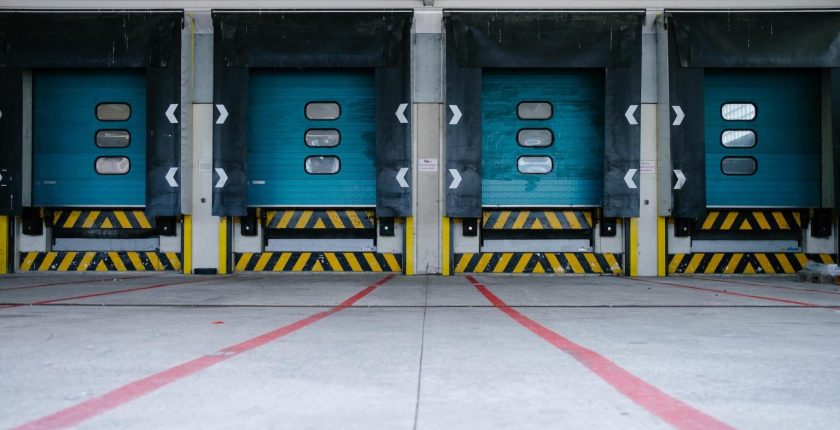How logistics companies are adapting to COVID-19
As a result of the spread of coronavirus, widespread economic uncertainty has affected almost every industry sector, and logistics is no exception. However, the virus has led to many companies taking innovative approaches to adapt their services to help fight against the pandemic and continue doing business.
A few weeks ago, we covered how engineering firms are helping in the fight against COVID-19, using their resources to produce PPE for key workers. This week, we’ll look at how logistics companies are adapting their offering to mitigate the effects of coronavirus, with a special focus on one of our clients, Bidfood.
Logistics adapts to COVID-19: Bidfood click & collect
Bidfood are one of the country’s largest foodservice wholesaler and distributors, known for supplying the out of home sector including hospitals, care homes, restaurants, hotels, coffee shops, schools and prisons. However, much of their business was hampered by COVID-19, which reduced activity significantly. While different depots were affected in different ways – with Central London the hardest hit – the impact called for action.
Therefore, the logistics company decided to look at adapting by offering a customer click and collect service. This allows the general public the option to order food, drink and non-food items from their e-commerce website, Bidfood Direct.
Consumers are now able to purchase a wide range of frozen, chilled and ambient goods from Bidfood’s core range. As a result of the scheme most of the depots are operating at 50% of normal capacity, and the company has managed to not only avert a crisis, but also supply millions with food during the lockdown.
Speaking about the scheme, Andrew Selley, CEO at Bidfood said:
“At Bidfood, we take the safety of the products we supply and our people incredibly seriously. In responding to the outbreak of the Covid-19 virus around the world and in the UK, its impact on international supply chains as well as recent consumer stockpiling, Bidfood is proud to have an extensive range and supplier base to draw upon.”
“Whilst putting in place comprehensive plans for our customers, we’ve also looked at how best we can support the general public and their requirement for food. As we see many outlets sadly shutting their doors for the foreseeable future, the pressure on retailers is only seeming to grow and so we have launched a service that will be a mixture of click and collect and home delivery to try and support the demand as best we can.”
Unlikely partnerships
In its efforts at adapting to COVID-19, the logistics company has even gone as far as to partner up with arch-rival Brakes – something which would never happen in usual circumstances. In fact, at WR Logistics, we’ve recently seen people crossing over between to two companies in ways that would have been completely unheard of prior to the pandemic! In some sense, it is the equivalent of a football player going from Man United to Liverpool.
This partnership is in support of a new government initiative to ensure that vital food supplies reach the country’s most vulnerable people during the coronavirus. The initiative will see the two companies working together to deliver hundreds of thousands of weekly care packages across the country to people at high risk from the virus who are not able to get easy access to food at this challenging time.
The food box delivery scheme for the extremely vulnerable will apply to the whole UK, and has recently been rolled out by governments in Wales and Scotland. The parcels, which will be delivered to the doorstep, will contain more than 20 essential items including pasta, cereal, tea bags, fresh and tinned fruit, milk, bread and biscuits, as well as non-food items like toilet rolls and shower gel.
Rail freight
Finally, when it comes to logistics firms adapting due to COVID-19, we have also seen an increase in companies moving to use rail freight instead of air, due to capacity and scheduling issues as a result of the coronavirus.
In fact, China actually witnessed an increase in the number of trains and cargo volumes moved by train to and from Europe via the ‘Silk Road’ in the first quarter of 2020, with March noted as a record month in Eurasian rail freight traffic.
This has been as a result of the transportation of medical supplies to battle the coronavirus, with railway giving priority guarantees for the transport of relief materials. By the end of March alone, China-Europe trains shipped a total of 333,800 aid materials, equalling 494 tonnes in cargo mainly to Italy, Germany, Spain, Czech Republic, Poland, Hungary, the Netherlands and other countries.
One of our clients, Davis Turner, has been one of the businesses contributing to this shift. Philip Stephenson, Chairman of Davies Turner, commented “I believe that the impact of COVID-19 will push many shippers to rethink their supply chains, and that could well see a lot more Asia-Europe air and ocean freight traffic moving permanently to the rail freight option.”
WR Logistics
Ultimately, COVID-19 is having a significant effect on logistics. The sector encompasses such a broad spectrum of services that different areas will feel various impacts, and while some have been able to focus on adapting their offerings, such as Bidfood, many other sectors are simply on hold, waiting for the current uncertainty to pass.
At WR Logistics, due to our strong remote working proficiencies, our capability to support clients, candidates, and our staff is just as strong as before. Despite trying times, we can conduct all of our operations from home and provide the same high-quality service.
We encourage all candidates and client to get in touch with us if they need more information on the situation. We are just as dedicated and as capable as ever, and will strive to help businesses and job-seekers during this time.


